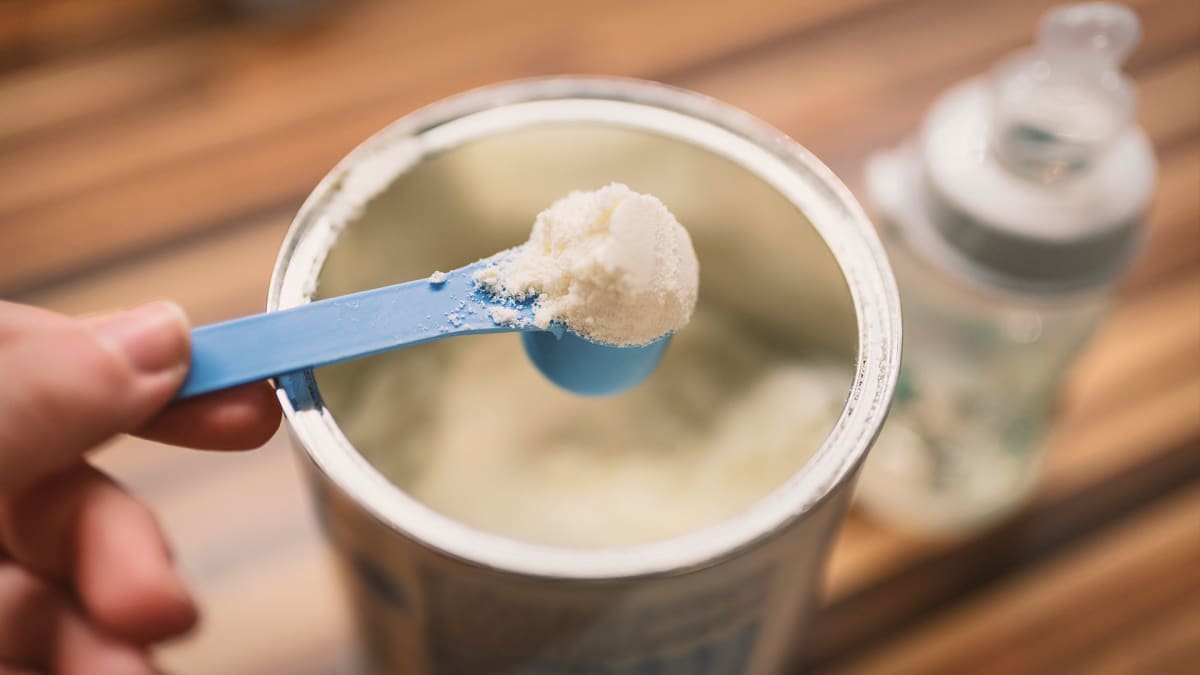
Parents of babies born in 2022 and late 2021 still remember the shortage that, for the rest of us, quickly faded into the rest of the news cycle--after major supplier Abbott Laboratories (ABT) closed a producing plant in Michigan amid several recalls, the situation became dire in parts of the country that were already hit hard by pandemic-related disruptions to the supply chain.
Out-of-stock rates reached 31% in April nationwide and over 50% in states like Texas, North Dakota, South Dakota and Tennessee. Big-box retailers like Target (TGT), CVS (CVS) and Walgreens (WBA) all put a cap on the number of purchases made at the same time while some parents reported rationing formula and rearranging feedings to avoid waste.
While the conditions that led to the situation are not fully "fixed," the situation became significantly less dire when the Biden administration relaxed import rules meant to encourage the production of domestic formula.
Is Another Formula Shortage On The Horizon?
Danone (GPDNF) 's Nutricia branch shipped over 770,000 cans of infant formula to the U.S. from Britain and the Netherlands between January and May while the Abbott plant resumed operations by the summer. International companies such as Nestle SA (NESAF) and Reckitt (RBGPF) also sold the U.S. millions of cans of infant formula.
While the situation could be past crisis levels, another change may be coming. The Wall Street Journal was the first to report that the tariffs reaching at times as much as 17.5% are set to resume after the exemption expires Dec. 31.
A return to the way things were before the emergency act was approved would dramatically curb international imports at a time when domestic production is still not fully back to normal rates.
Recent census data reported that a third of families with infants ran into at least some difficulties securing formula last month while Rickett's North American SVP said that he expects the shortage to "persist to some degree until the spring resets."
"If you ask the FDA, they say everything is OK," Mitzi Baum, who heads the consumer advocacy group Stop Foodborne Illness, told USA Today. "But if you ask the new mother or the Facebook group that, they still can't find it, or even in your neighborhood, it is still a problem."
Kroger Company (KR) also told the Wall Street Journal that it is still struggling to stock some store shelves at normal rates.
What You Should Know About Formula This Year
While there is as yet no information on whether Congress will let the tariffs expire, it is currently facing pressure from the U.S. dairy industry to return the tariffs and prioritize domestic production. With low out-of-stock rates, it will need to weigh both the risk of a future shortage when deciding whether to let the tariffs exemptions expire.
"Given that the temporary production shortfall that gripped American families in need of formula earlier this year has abated, we urge Congress to ensure that the unique, unilateral tariff benefits granted to our trading partners under the Formula Act and the Bulk Infant Formula to Retail Shelves Act end as scheduled at the close of this year," Jim Mulhern, president and chief executive of the National Milk Producers Federations, wrote in a Nov. 17 letter to Congress.







